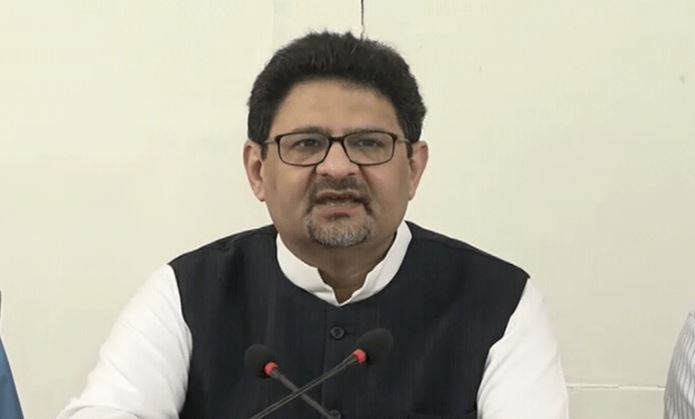Threat of default is over; Country on track to progress now; Rich taxed to reduce budget deficit
Ijaz Kakakhel Islamabad
Winding up the debate of budget session 2022-23 in the National Assembly, Finance Minister Miftah Ismail emphasised that Pakistan, the country of 220 million people, was not going to default in any shape, adding that it would rather head towards progress and development by the grace of Allah Almighty
Miftah Ismail said that the government would impose a fixed tax on small traders and added that the fixed tax will be collected through electricity bills.
“There are 30,000 gold shops in the country and out of these only 22 are registered, claimed Miftah. We have reduced the tax on those selling gold in shops from 4 per cent to 1%,” he said.
Talking about the super tax imposed by the government on ‘big industries’, the minister said, the new tax regime would increase the tax burden of companies owned by the PM’s sons too. “My company’s tax burden will also increase by around Rs200 million,” said Miftah Ismail.
The government will tax the income not expenditures, he said. The minister said that some of the recommendations made by the legislators have been added in the budget. Pakistan has never seen such a farmer-friendly budget, he said adding that Pakistan will be self-sufficient in edible oil and wheat. We are no longer going towards default, we will progress, the minister said.
He had presented the budget for the fiscal year 2022-23 with an outlay of Rs 9.5 trillion on June 10. As debate on the budget commenced in the NA, Ismail said most of the recommendations made by lawmakers in the Senate and NA during preceding sittings had been incorporated into the budget.
During his address, he referred to the taxes announced by Prime Minister Shehbaz Sharif earlier in the day, Ismail told the House that no indirect taxes had been imposed and neither had any tax been imposed on consumption. “We have taxed the rich.
Much of the revenue will be collected through that so that we don’t have to ask for money from others and are able to reduce our budget deficit,” he said.
He said the government had committed to the IMF that the primary deficit of Rs1,600b recorded this year would not only be brought down but there would be a surplus of Rs153b.
To achieve this, as well as self-reliance, an additional tax of 1pc would be imposed on individuals and entities whose annual income exceeded Rs150m on account of poverty alleviation. Similarly, he added, those with an annual income of over Rs200m would be subject to an additional tax of 2pc, those earning more than Rs250m to 3pc and those having an annual income of more than Rs300m would be taxed 4pc of their income.
“This is a one-time tax for the fiscal year 2022 (on income earned in that year),” he added. Moreover, the minister said, the government had identified 13 sectors that had earned significant profits this year. “And we have decided that companies that have an income of more than Rs300m, will be subject to a super tax of 10pc for a year,” he announced.
The minister said companies working in cement, steel, sugar, oil and gas, fertilizer, LNG terminals, textile, banking, automobile assembling, cigarettes, beverages, chemicals and airline sectors would have to pay this tax.
Entities in the rest of the sectors, he said, would have to pay this one-time additional tax amounting to 4pc of their income.










